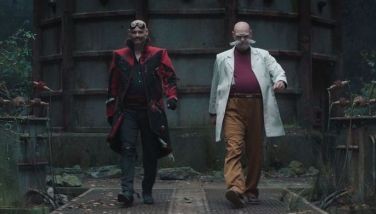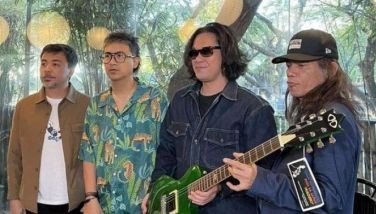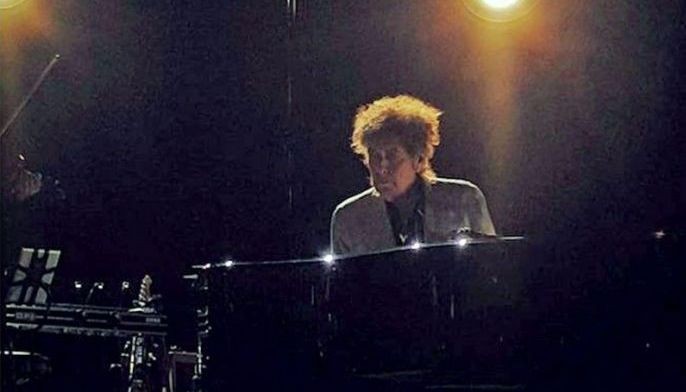The thing about Godzilla
Here’s the thing about Godzilla: it’s a whole franchise of films with their own particular culture. I went into the theatre knowing this, but I’m not a Godzilla buff. So I write this review coming from a particular place, one that is inexpert in all things Godzilla. I hear this one was an attempt to be much more like its Japanese roots, much more recognisable to fans of the King of the Monsters. I hope it was fun for them to watch.
Here’s the thing about this Godzilla: it’s more fun to talk about than it is to watch.
The film goes for the slow build. It starts from an unknown location in (hold your breath) the Philippines, where a mysterious podlike spore has been discovered. Scientists Ishiro Serizawa and Vivienne Graham, played by (the be-all and end-all to Hollywood’s imagination when it comes to casting Japanese leads) Ken Watanabe and Sally Hawkins, determine that there was another spore there, and it has hatched — making its way to Japan, the closes source of the nuclear power it so instinctively craves. So ends our country’s short-lived participation in the film.
There, the Janjira nuclear plant begins to experience anomalous seismic activity, ultimately scoring tragedy for the plant’s supervisor Joe Brody (Bryan Cranston). His wife Sandra (Juliette Binoche) dies in a dramatic sequence resulting from the plant’s breakdown; he is left with their young son, who witnesses the plant’s destruction from the outside while his mother dies on the inside.
So ends the least emotionally dead part of the film. It was surprising to see how early the big names perished. Juliette Binoche, of all people, is the first to go before we even get a whiff of Godzilla’s spiky dorsal-like fins. I expected Bryan Cranston to stick around much longer than he did, being the scientist-who-saw-it-coming figure that is so crucial to these films. But he dies, just as the spore hatches anew into a MUTO (Massive Unidentified Terrestrial Organism) and the United States Navy attempts to take control of the situation from the private organization Monarch that has apparently been crunching the data on these creatures since the 50’s.
The rest of the film juggles an attempt at a compelling human drama, shifting the perspective to the young son, who grows up into United States Navy lieutenant Ford Brody (Aaron Taylor-Johnson), with sweet wife Elle (Elizabeth Olsen) and a young son of his own, Sam (Carson Bolde). But like the fight to take control of the situation, the compelling human drama doesn’t quite work. Humans in this film are inconsequential to the grand events of nature. The result is that Brody, his wife, and his son are little more than human effects. The real characters are the monsters.
The awakening of the MUTO sets of a chain of events none of them can hope to control. Godzilla surfaces, without much preamble; Serizawa and the rest are at first confused as to why the MUTO would call up an alpha predator. But they soon realize their error: the MUTO wasn’t talking to Godzilla. It was talking to its mate, across the Pacific, all the way in Nevada, where the foolish humans thought to take the other spore. Godzilla was simply listening in.
What follows has a lot of potential for the jovial humor that can come from watching a film with a premise like Godzilla, but has unfortunately decided to be utterly serious. The two MUTOs make their way to each other, to complete their mating ritual, leaving a trail of devastation in their wake. Godzilla stalks them, watching and waiting, and curiously as unobtrusive to the many Navy vessels that monitor him as he can be at his size. Meanwhile, the military goes crazy trying to figure out what to do (their well-thought out conclusion is the American way: blow them up).
All three are to converge in the well-populated San Francisco, where Brody’s wife and son reside. Brody manages to get absorbed into the mission by the United States Navy in order to speed up his return to his wife and child, but ultimately becomes part of the futile attempt to neutralize the threats. The last third or so of the film might resemble a bit of the Call of Duty games, where the military boys get a lot of screen time.
The thing about Godzilla is that it can work either as a creature feature, a disaster film, or both. In the 1998 film, the action happens in New York City, the human characters are the heroes, and Godzilla is definitely the antagonistic monster. And if this earlier American reimagining is what people were going by, when going to watch this version, they might expect creature feature, where the folly of man is berated but where he ultimately (albeit temporarily) triumphs over the monster.
There is no such luck in this version. The treatment of Godzilla here is a little more in tune with the classic films, where he is a force of nature, a kind of disaster. The romance of Godzilla is not that he is on our side, exactly, but that he happens to be the lesser evil and the greatest of all the monsters. So he’ll fight the other monsters that really pose a threat to us — in this film, the horror is that two MUTOs are trying to spawn — because in the order of nature, he is at the top.
Serizawa, the lone Japanese main character, explicitly states the message: the arrogance of man is that he thinks he can control nature, not the other way around. In short, Godzilla is gonna do what he’s gonna do — we’d best stay out of his way, or cope with being in his way. We have to let nature take its course, because all attempts to resist or to control it will be futile.
If this film is an attempt to initiate viewers into the wonderful world of Godzilla films, I don’t think it will succeed. Its human drama was too deadened and its glorious combat between massive monsters not hammy enough. Many of its more wonderful moments were ill-timed and lost in the chaos, sometimes making it feel like a chore to watch.
And for the unfamiliar, the sudden spin on Godzilla as a savior will seem jarring, maybe bizarre. All the time spent with Lieutenant Brody and his family appears useless in hindsight, almost as though they needed mascots for mankind and went with the most stereotypically convenient ones possible. The humans only mattered in the beginning, when it was still our world, when we didn’t know what was coming. Once he rose from the depths of the ocean, we ceased to matter.
But every generation needs to have a Godzilla. The thing about Godzilla as a film is, it’s an event. There’s nothing that screams “summer blockbuster†more than spending it inside the theatre, beating the heat and watching giant monsters tear through heavily populated urban areas in a fight with each other. Godzilla is the movie event anyone can go watch, and anyone can talk about; it’s the one worth buying the jumbo popcorn for a large group of loud friends to watch with. Not every movie is like that.
And like the titular monster, it’s a passing event that will surely come back. We don’t know when and we don’t know how, but I’m willing to bet that this is not the last we’ve seen of the King of the Monsters, and it’s not a bad thing.
- Latest
- Trending
































